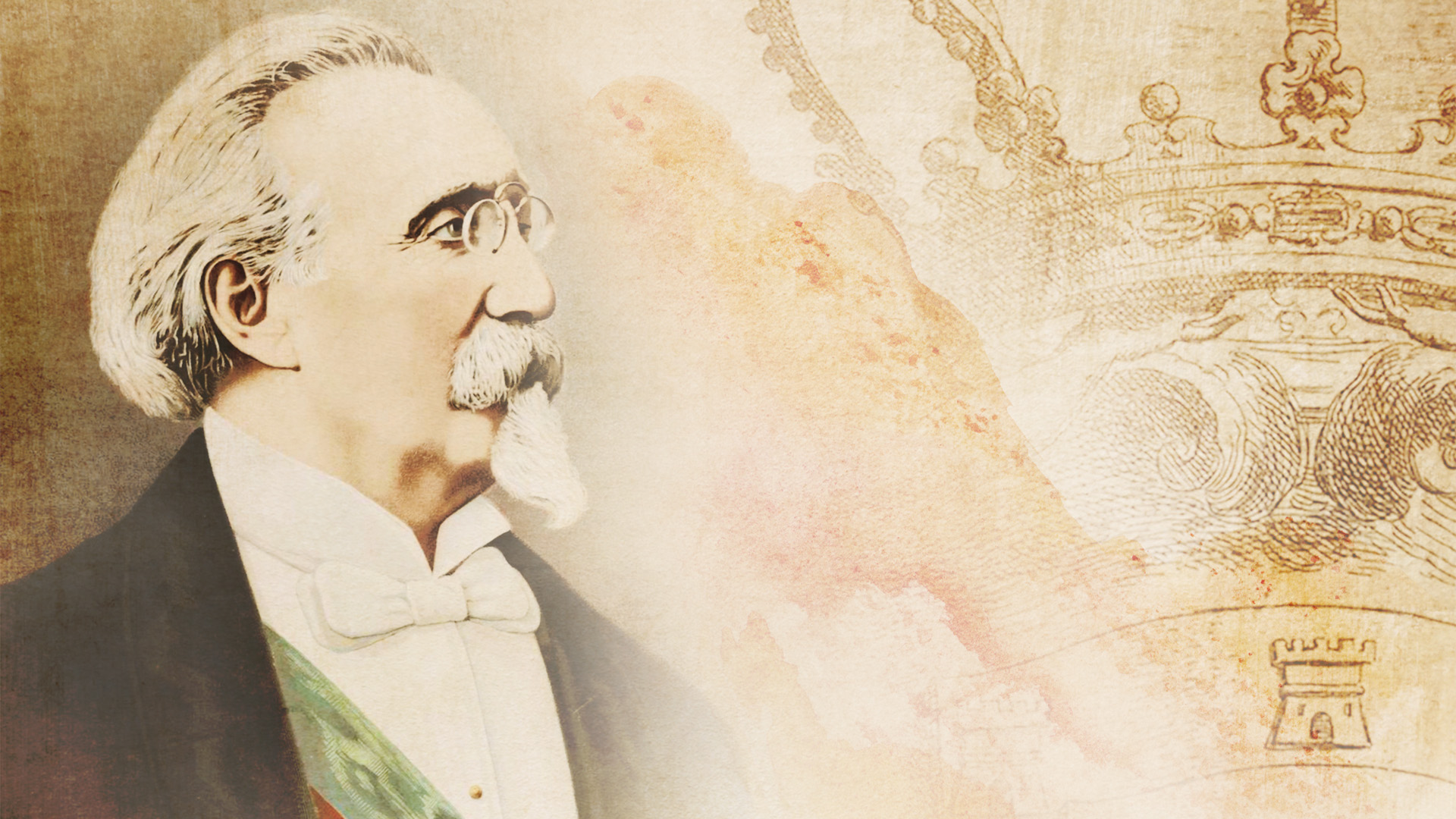Manuel de Arriaga was the first President of the Portuguese Republic, and was born in the city of Horta, Faial Island, on 8th July 1840.
Coming from a family of the small local aristocracy, he entered the University of Coimbra Law School, completing his bachelor’s degree in 1866 and his degree in 1875. During this period, he lived between Lisbon and Coimbra, meeting eminent figures of the Portuguese intelligentsia, such as Antero de Quental, Oliveira Martins, Luciano Cordeiro, Eça de Queiroz, and Batalha Reis.
Member of the 70’s generation, he adhered to the republican ideals and, from a very early age, intervened in the country’s political and cultural life, standing out in the definitive organization of the Portuguese Republican Party and in the systematization of the republican ideology. He also became one of the main opponents to the British ultimatum of 1890.
Following the establishment of the Republic, in 1910 he was appointed Attorney-General for the Republic and Dean of the University of Coimbra. The following year, he was elected Member of the National Constituent Assembly for the constituency of Funchal, presiding over the Drafting and Foreign Affairs Commissions.
After a close dispute with Bernardino Machado, on 24th August 1911, Manuel de Arriaga was elected the first Constitutional President of the Portuguese Republic. He resigned on 29th May 1915, three months before the end of his mandate, due to the growing rivalries between the republicans.
He also dedicated himself to literature and published the book of poems “Canto ao Pico” (1887), the novel “Síntese Suprema” (1897), “Cantos Sagrados” (1899); “Harmonias Sociais” (1907), and also “Na Primeira Presidência da República Portuguesa” (1916), where he justified his political conduct during the period he was head of state.
He died in Lisbon on 5th March 1917 and was buried in the Prazeres Cemetery. On 16th September 2004, his mortal remains were transferred to the National Pantheon.
Manuel de Arriaga
